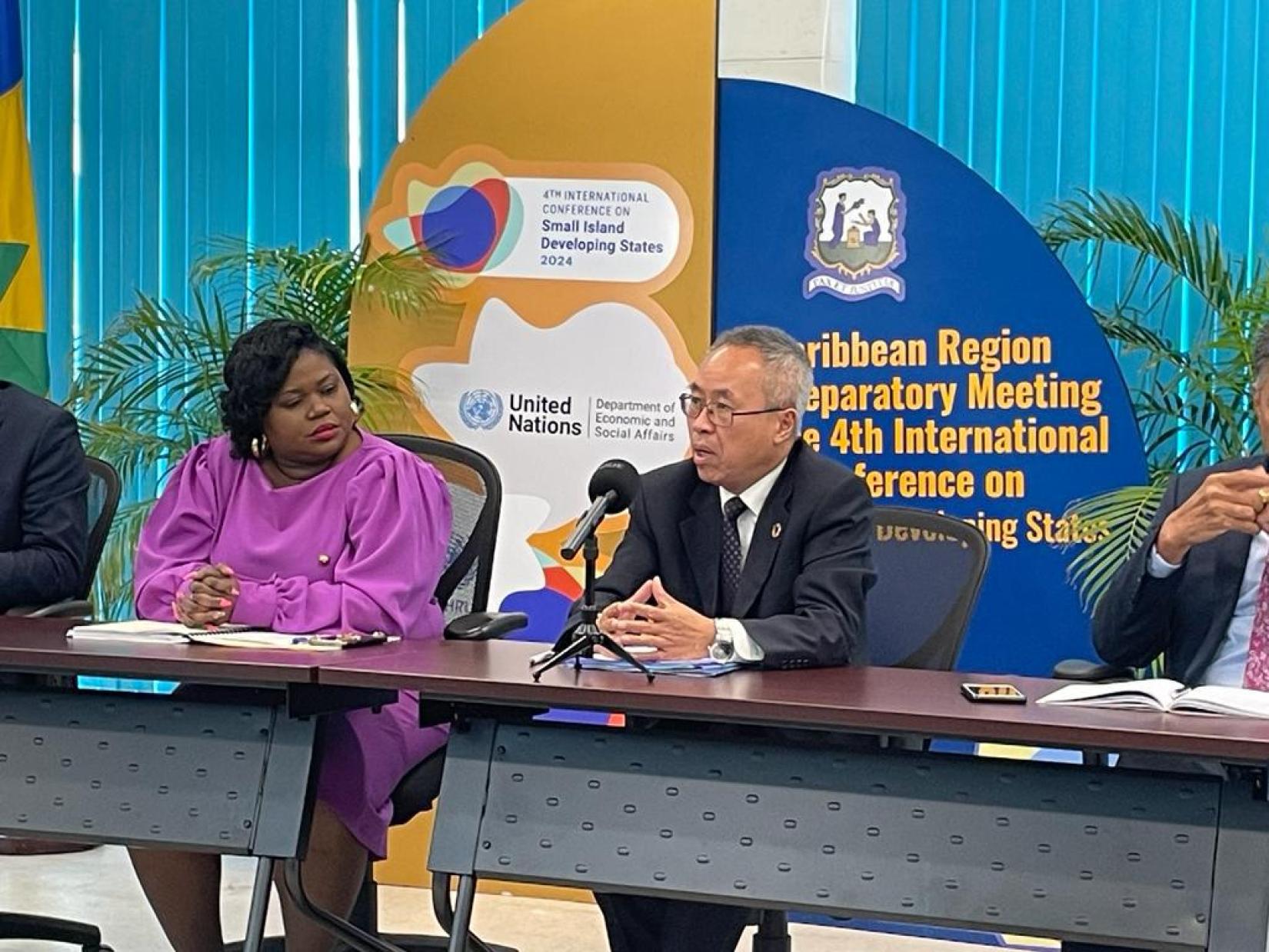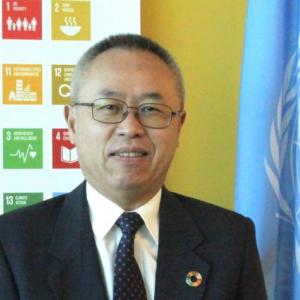Small Island Nations are at the forefront of our global crises: It’s time we follow their lead in shaping the solutions
31 August 2023

By Li Junhua
Over the past six weeks, the United Nations has facilitated an intensive round of consultations and meetings in the three regions of the Small Island Developing States (SIDS) of the world.
What struck me while visiting Mauritius, St. Vincent and the Grenadines, and Tonga was not how much they are threatened by climate change, debt and the lingering effects of the pandemic– but how resilient they are and how many ideas they have for how things can improve.
Small Island Developing States (SIDS) have, in fact, been leaders in the global conversation on sustainability and vulnerability for decades. Despite their limited resources, many SIDS have launched innovative initiatives to tackle climate change, diversify their economies, promote domestic food production, and provide good jobs for their young people.
They have also been fervent champions of multilateral cooperation.
But what is also clear is that these stewards of our ocean need engagement and investment from the international community and private sector to help them deliver.
A sustainable future for the entire planet relies on a renewed and strengthened partnership between all island nations and the international community based on solidarity, mutual respect and shared responsibility.
Climate change is currently – and perhaps unsurprisingly – the greatest threat to SIDS. A constant barrage of hurricanes, cyclones, typhoons, drought, sea-level rise and acidification, cause significant damage to economies and infrastructure in addition to the profound loss of lives, livelihoods and homes. This on top of the deep impact of geological hazards such as earthquakes and volcanic eruptions.
Charting the course towards a more resilient and stable prosperity requires the fullest support of the international community, as well as the political will of our governments to pursue urgent collective and cooperative action.
Through a series of regional meetings, SIDS governments have proposed some concrete measures:
1. A dedicated debt relief mechanism for SIDS that accounts for the fact that recovery and response to natural disasters and climate change are a huge driver of debt in island economies, and will only get worse without international support;
2. A SIDS data hub that will monitor and track development progress in SIDS, as well as increased investment in national statistical systems that will improve disaster responses, national planning and environmental management;
3. Adoption of the Multi-Dimensional Vulnerability Index (MVI), a new tool to develop a more nuanced measure of vulnerability that is not linked to an island’s income. This is vital if SIDS are to be able to access funds to support development in the face of increasing climate volatility.
Like the rest of the world, SIDS were also dramatically impacted by the COVID-19 pandemic. Recovery has been slow, largely attributable to their difficulty in accessing financing.
SIDS are determined to build back better, with a heavy focus on economic restructuring and diversification into new sectors, through investing in skills, digital and other technologies and innovation to produce more sophisticated, competitive products and services. This is all vital – and expensive— work.
The meetings of the last few weeks have all been in preparation for the Fourth International Conference on SIDS, to be held next year in Antigua and Barbuda. That event will provide an opportunity for the international community to better support these island nations in the quest for a more resilient future.
The outcome of that meeting will be a new 10-year plan of action for SIDS, and the stakes for this next decade could not be higher.
The United Nations is committed to supporting these small island nations to build a global consensus of support packages that will help their development journey through the challenging years ahead.
The ambition we bring to Antigua and Barbuda must be high. The time for burying our head in the sand is over. The global fight for survival will be fought first on the beaches and in the cities of Small Island Developing States.
Li Junhua is the United Nations Under-Secretary-General for Economic and Social Affairs.

Li Junhua
Mr. Li has a long and distinguished career in the Chinese Foreign Ministry, where he has held a variety of positions, including Ambassador to Myanmar and Italy, Director General of the Department of International Organizations and Conferences, and Minister Counselor to the Permanent Mission of China to the United Nations. He has also represented China at numerous multilateral meetings, including the G20, APEC, ASEM, and BRICS.
Mr. Li is a strong advocate for multilateralism and international cooperation. He believes that the United Nations is essential for addressing the challenges facing the world today, and he is committed to working with all parties to further implement the 2030 Agenda for Sustainable Development.
In his new role as Under-Secretary-General, Mr. Li will be responsible for leading the United Nations' work on economic and social development. He will work with Member States to develop and implement policies that promote economic growth, reduce poverty, and achieve sustainable development. He will also work to strengthen the United Nations' capacity to respond to global challenges, such as climate change, food security, and inequality.
Mr. Li is a highly respected diplomat and economist with a deep understanding of the challenges facing the world today. He is a strong advocate for multilateralism and international cooperation, and he is committed to working with all parties to build a more sustainable future for all.




